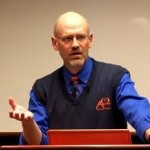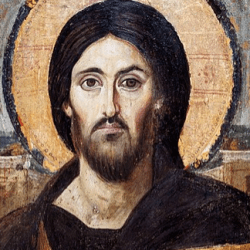
Post by Nathan Rinne (who, I re-iterate, is only speaking for himself on this blog)
“Good God – absolutely nothing!” many will undoubtedly want to say.
But wait.
What is it that makes popular atheist scientist-philosophers like Michael Shermer strong Donald Trump supporters? You can listen to his own reasons, but part of it, I suggest, has to do with the idea that there are permanent and enduring things in the cosmos that cannot be fundamentally altered by our imagination or will (I also addressed this in two of my recent articles here – see this and this). Hard core scientific naturalists like Shermer do not submit to and worship the Creator, but highly respect and revere his creation (“nature”) instead.
And contrary to the suffocating politically correct dogmas that rule in our mainstream media, politics, and universities, many persons want to be able to speak freely about facts that we can all know by experience – including from nature, the physical world, biology, etc. – as opposed to one’s feelings about those facts.[i]
This important realization is something that seems to be lost to the political left more and more, but is embraced by forms of political conservatism (in the West, generally “classical liberalism”), now seemingly re-ascendant, perhaps in part because of what one has called “cultural libertarianism”[ii] (a.k.a., the “alternative right” – this, it seems, is a form of political conservatism with a reduced emphasis on ideological capitalism, small government, and sexual ethics).

I truly enjoy thinking about God as the Creator. I have always had a strong interest in science, and prior to getting a theology degree, I studied biology and chemistry in college. Taking a strong interest in what scientists call the “natural world” is, contrary to what many persons say, completely consistent with the Christian faith.
As a matter of fact, the Christian faith actually encourages this. It is very interesting to note, as the Christian philosopher James Bachman does, that the God found in the Bible “demystifies the natural world by taking personal benevolence and malevolence out of the account of sun and moon an natural phenomena” – people of the Psalmist’s day really did worry that the gods of the Sun and Moon “might strike you by day…[and] by night”, respectively! (James V. Bachman, “Lutheran Theology and Philosophy”, The Idea and Practice of a Christian University, p. 174).
That is a fantastic insight. Also, in his very interesting 1970 book, The Clockwork Image, the late Christian scientist Donald M. Mackay had this interesting comment about the rise of “scientific habit of mind” in the West:
“What are the telltale features of the scientific habit of mind? Historically, perhaps the first was a new kind of respect for the natural world as a worthy object of study. Nowadays we might scarcely regard this as a distinguishing feature; but that only shows the extent to which the new ideas have been accepted. Whatever truth there may be behind all the talk about ‘two cultures’, the scientific and the humane, there can be little doubt that the average layman today had absorbed far more than he realizes of the scientific habit of mind. Three centuries ago, the notion that ordinary matter could repay the attention of men of learning seemed absurd to many people. Only a few bold spirits ventured to believe that, if God thought matter worth creating, then they might find it worth studying, and might expect to be rewarded by discovering order and harmony in the most commonplace objects and events around them. By contrast with Plato’s disregard for the material world, and the scholastic preference for arguing in an armchair from first principles, these men shared the burning conviction that what God had written in the book of nature (as they put it) ought to be read. Like the Bible itself, it could not fail to reward the man who approached it in the right spirit.” (p. 24, italics and bold mine)

I think this nicely sums up the beginnings of the scientific revolution from a traditional, intellectual, Christian perspective.
I would add the following: we have very good reason for believing that the success of modern science, for example, is mostly due to faithful Christians who believed that God arranged the universe such that we would be able to discover the regularities in the creation and harness them (and so, the ancient knowledge that good boats will always float and the stars will always follow their patterns has been supplemented with harness-able knowledge that even a few years back was beyond our imaginations).
Truly, God has designed and orchestrated His creation in such a way that it goes through regularly repeating cycles: the sun rises every day, the rains and snows fall in season, each living thing reproduces “according to its kind”, etc. There are regularly occurring things happening all throughout the creation, so much so – and in so consistent a fashion – that we now commonly call these things the “laws of nature” (in our more modern times, the “laws of nature” are now for many thought to be completely autonomous from any “God”, but when this term was first used, most all scientists who used it believed that God had “written” the “laws”). Here we think about the things we call gravity, electricity, time and force – and how they are all a part of the world’s wonderful design by God. God “upholds all [of these] things by His powerful word” and “in Him, we live, and move and have our being”, although to say this does not imply that God is like a member of the Greek or Roman who endlessly expend effort in “working” the sun, wind and waters!

I think all of this can be better understood with a simple analogy, and here is where my view diverges from what you will usually hear from Christians interested in science: Parents arrange things in a consistent fashion so that a child can be captivated, play, create and experiment on the one hand, and they arrange things and act in a consistent fashion so that the child feels security, stability, and confidence, on the other hand (having five kids who have attended a Montessori school has contributed to me thinking about things in this way). Arranging things in a consistent fashion – more or less so – depending on what we are talking about, and acting in a consistent steadfast fashion is a part of love. Creating beauty and order for another is a fruit of love. In other words, order is born of love, not love of order – or from a love of order!
![Adam "contra cultural libertarian [?]" Smith: “The man who barely abstains from violating either the person, or the estate, or the reputation of his neighbors has surely very little positive merit” – Adam Smith, in his “Theory of Moral Sentiments”, quoted by Donald Trump (who says “it’s definitely worth picking up”)](https://infanttheology.files.wordpress.com/2016/03/adam-smith.jpg?w=201)
This does not means something like “truth is simply a social construct” instead of having to do with [cold and impersonal] factual correspondence, or something like that – but that how we conceive of and describe reality can’t not be done personally, or socially (more here). And such should not surprise, because Reality is personal, is social (rooted as it is in the Reality of the Triune God).
And this, perhaps, should remind Christians of Romans 1: “[the] divine nature… [has] been clearly perceived, ever since the creation of the world, in the things that have been made. So they are without excuse.”
It is not that there is nothing to the idea that order = God, but rather that order can’t not be recognized as a fruit of love. Perhaps one’s proof of God does not begin by saying “Someone must have made this”, but rather by the love that one does know.
With this in the background, one can see how creation should be very important to each Christian believer. From the beginning, according to the Bible, humanity’s primary tasks were to: 1) have a relationship with God and live in love and joy with Him; 2) to serve others in God’s name; 3) to take care of God’s creation (plants, animals, planet, universe)[iv]. Marvelously simple!

I could say a lot more here, but let me simply close with this: the Christian view is that God’s good creation went awry. There was a fall into sin and things are now not the way they are supposed to be (what I think that means for so much of the “identity politics” we experience today I have written about here). In Genesis 3, the world is thrown into chaos by man’s sin – it is now fallen and in need of redemption.[v]
And here there is this: we are told that the Son of God was there in the beginning of the Creation and He will be there in the end as well – with all those who in faith share in the redemption that is by His blood. Perhaps because of the Fall into sin, Jesus Christ is not unambiguously declared by the Creation itself, but specific, revealed language about Who He is and how He reveals the heart of His Father (i.e. forgiveness for those who were His enemies – us!) is now absolutely vital so that persons might be brought to faith in Him – and continue in faith throughout the course of their lives.
Whatever happens in the world of politics, Christians will continue to talk about how Jesus Christ rescues us from the power of our sin, the scourge of death, and the rule of the demonic. He is the Great Deliverer of His Bride, the church, and looks to bring forgiveness, life, and salvation to all persons.
In the midst of currents that might seem more pressing, I invite you to come and see this One we call Jesus, the Christ.
FIN
All images are public domain and are obtained via a Creative Commons search: Trump from Wikipedia, Adam Smith from Flickr (https://www.flickr.com/photos/surfstyle/272576639), Jonathan Haidt from Wikipedia, King David from Wikipedia, Montessori classroom from Wikipedia, Janet Mock from Wikipedia.
Notes:
[i] In the current environment of Western elites, the word “essence” or “nature”, if it is thought to be able to communicate anything (note I did not say “mean anything”), comes to be associated with things like class, race, gender, religion and even sexual desire. Persons will go so far as to deny basic biology in order to push whatever “evolving essentialism” they feel should be their right – revolting vs. biology, nature, the physical world.
[ii] Cultural libertarianism is all about being able to speak freely. Particularly about facts we can all know by experience – nature, the physical, biology – vs our feelings about those facts. Some will go so far as to say that they don’t believe, as the Left does, that language shapes reality. Well, of course it does and they also must believe it does (reality can be defined very broadly), but just not so much so that if overwhelms and makes irrelevant the facts by sheer force.
[iii] Christianity holds both of these things in tension. God’s words and communication did make all and get the ball rolling, and even us speaking His words brings change. But there are also things that are fundamental and that do not change. Platonists, Aristoteleans, Stoics, and even Materialist Epicureans agree with us on this of course, but the details are where we differ.
[iv] There can be no doubt that God desires humans to take care of His world. This is a simple matter of stewardship. As a matter of fact, the Christian thinker Francis Schaefer urged Christians to do as far back as 1973 (in his very interesting book “Pollution and the Death of Man”),
[v]This also may have been a significant thing that propelled modern science. Some of the predecessors of modern science, such as Roger Bacon, saw things like aging, for example as the unnatural result of Adam’s fall into sin. Therefore, men like Francis Bacon, for all of the flaws in his thinking, “addressed the ancient problem of the fall into sin, which effectively sundered godly relations between humankind and nature. Toil and suffering, the ruined earth, affliction with drought and storm, insects and disease, were the consequences of the Fall” ( http://science.jrank.org/pages/10450/Nature-Nature-during-Scientific-Revolution.html ) Again, since Christians never believed the spirits in the entities of the at times frightening world of nature needed to be appeased/placated (they were God’s “good”, though fallen creation), modern science could be pursued.















